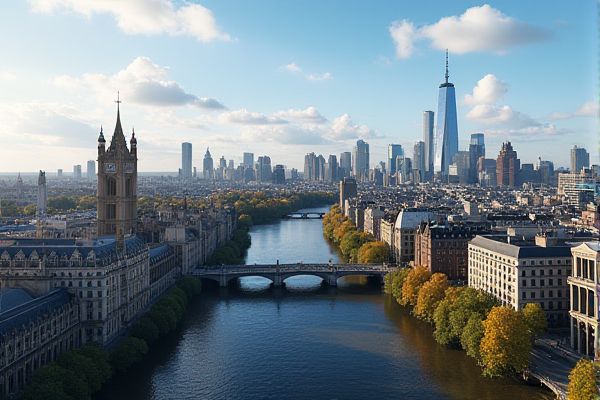
Healthcare facilities in United Kingdom: National Health Service (NHS) coverage. General Practitioner (GP) registration process. Emergency services contact: 999. Free hospital treatments availability. Private healthcare options. Prescription charges and exemptions. Dental care inclusion and costs. Mental health services access. Routine vaccination programs. Healthcare for international students.
National Health Service (NHS) coverage.
The National Health Service (NHS) in the UK provides comprehensive healthcare coverage based on clinical need, not ability to pay. All individuals ordinarily resident in the UK are entitled to free primary, emergency, and compulsory psychiatric care, with secondary care services also available to residents. While private health insurance is used to access additional or quicker services, the [NHS](https://eurohealthobservatory.who.int/publications/i/united-kingdom-health-system-summary) remains a cornerstone of healthcare in the United Kingdom, ensuring that essential medical services are accessible to everyone without financial burden.
General Practitioner (GP) registration process.
To register with a GP practice in the UK, individuals must complete a registration form, which can be downloaded and emailed to the GP practice. It is important that they plan to stay in the area for more than three months. Once the registration form is submitted, the practice will update the NHS central database and notify the patient of successful registration. For more detailed information, you can visit the NHS Inform website.
Emergency services contact: 999.
In the UK, the emergency number 999, along with 112, serves as a vital connection for callers seeking emergency services such as police, fire, and ambulance. This crucial system is operated through BT's call centres, which efficiently route calls to the suitable emergency control centres. The routing is based on the caller's location and the specifics of the emergency. For more information, you can visit the Wikipedia page dedicated to this emergency telephone number.
Free hospital treatments availability.
Free hospital treatment in the UK is available to those who are "ordinarily resident," which includes services such as emergency and maternity care, treatment for certain infectious diseases, and essential services like GP visits, accident and emergency treatment, and family planning services. For specific conditions, these services are accessible regardless of immigration status, ensuring that critical healthcare needs are met. For more detailed information, individuals can refer to the NRPF Network, which outlines the rights and entitlements for accessing free NHS treatment.
Private healthcare options.
In the UK, private healthcare options include renowned facilities like The Portland Hospital, specializing in women's and children's care, King Edward VII's Hospital, which supports veterans, and The Wellington Hospital, the UK's largest private hospital offering complex care services. Other notable private hospitals include Highgate Private Hospital, part of Nuffield Health, and the Cleveland Clinic, a global healthcare network with a new hospital in London. For more information on these exceptional private healthcare providers, you can explore further details on the Best Private Hospitals in London website.
Prescription charges and exemptions.
In England, NHS prescription charges are currently £9.90 per item, but a range of exemptions apply. These exemptions cater to individuals under 16, over 60, those in full-time education aged 16-18, pregnant women or those with a baby in the last 12 months who possess a valid maternity exemption certificate, and those diagnosed with specified medical conditions or disabilities holding a valid medical exemption certificate. Additionally, exemptions are granted to individuals receiving certain benefits or holding specific certificates. For more details on the exemption criteria, you can visit the Parliamentary Commons Library website, which offers comprehensive information on NHS prescription charges in England. This includes the NHS Low Income Scheme and war pension exemption certificates, ensuring access and affordability for those in need.
Dental care inclusion and costs.
NHS Dental Care in the UK is categorized into three bands: Band 1 for examinations and preventative care, Band 2 for fillings, root canal work, and extractions, and Band 3 for crowns, dentures, and bridges. Patients may be eligible for free or reduced-cost treatment based on certain criteria, such as tax credit exemptions or specific benefit schemes. For more comprehensive information, you can visit the NHS Dental Services website to understand the eligibility requirements and the type of dental care included within each band.
Mental health services access.
In the UK, mental health services are primarily provided by the National Health Service (NHS), which offers free access to various mental health services, including therapies, community mental health teams, and hospital treatments. Access to these services often begins with a referral from a General Practitioner (GP), although some services, such as crisis helplines and certain talking therapies, can be accessed through self-referral. For more detailed information, you can visit the National Health Service website, which provides comprehensive guidance on the range of mental health services available across the UK.
Routine vaccination programs.
The UK's routine vaccination programs encompass a comprehensive schedule for children, adolescents, and adults, including vaccines such as the 6-in-1 vaccine, MMR, HPV, flu, and others. Each vaccine is strategically recommended at various ages and for specific at-risk groups, ensuring protection against infectious diseases. For more detailed information on these schedules and recommendations, visit the comprehensive [NHS Vaccinations and When to Have Them](https://www.nhs.uk/vaccinations/nhs-vaccinations-and-when-to-have-them/) guide provided by the National Health Service.
Healthcare for international students.
International students in the UK, especially those studying for more than six months, are eligible for NHS treatment by paying the Immigration Health Surcharge as part of their visa application. This allows them to access a wide range of services offered by the National Health Service, including GP visits, hospital treatment, and reduced-price dental care, without needing private medical insurance.
